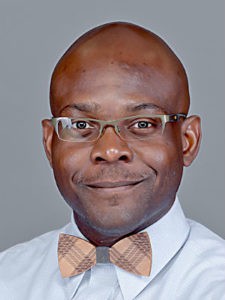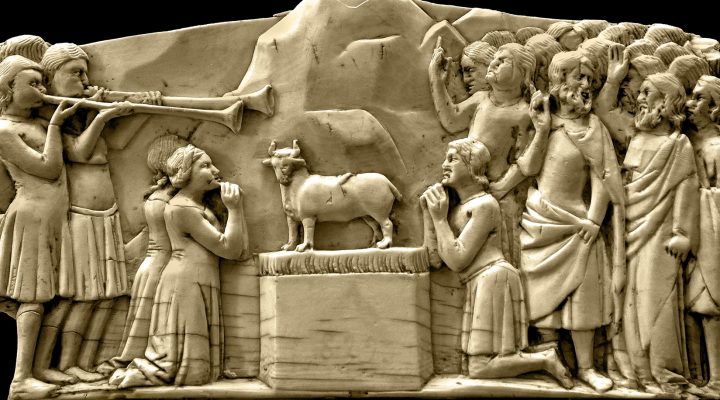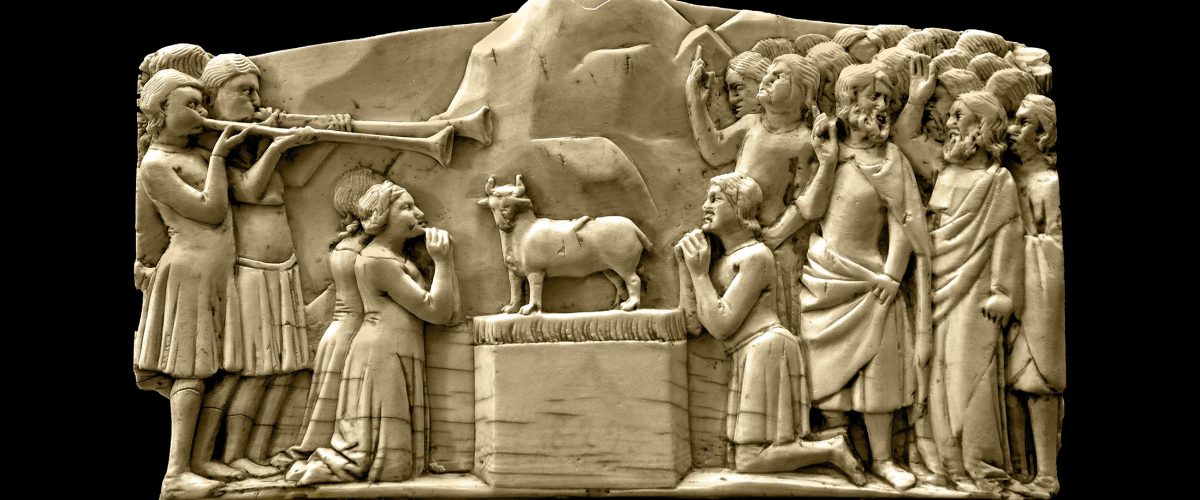Beyond the campaigning that constantly exposed me to innumerable unsolicited ads in the mail and on television, what has bothered me most this election season is the bipartisan gullibility of Christians.
We should, and many of us do, know better, but we sure haven’t acted like it.
In biblical parlance, two-legged sheep are, well, still sheep and they are not celebrated for their cognitive superiority or depth. In our midst, Christians are comporting themselves like they know nothing about Jesus or maybe know of him, just not intimately for salvation.

James Ellis III
Nihilism is being normalized, hate defended, democracy scorned, and disappointment weaponized as justification to throw Jesus and his people, the church, to the curb like trash. This reveals afresh how underdeveloped and thirsty for attention and power God’s people can be. It is not a good look.
We take stock of our commander in chief every 1,460 days. With Super PACs and everything else, it is an imperfect process, but it is our process. Barring voter fraud or other illegalities, this is democracy.
There are no participation trophies regarding outcomes, only winners and losers. Like Abraham Lincoln said in his historic 1863 Gettysburg Address, we are, “Of the people, by the people, for the people.”
We will come together now or refuse at our peril, skipping both the macro and interpersonal homework that is necessary, if unity without uniformity is as important to us as we conveniently say it is.
“Abandoning my faith, any meaningful church membership and opting for the so-called higher ground of disassociation is bogus.”
I want Jesus’ followers to be convicted that neither escapism nor hopelessness are satisfactory options. Abandoning my faith, any meaningful church membership and opting for the so-called higher ground of disassociation is bogus. Whether or not we are excited about an incoming presidential cabinet, we all have important roles to fulfill. We have private and public work to do, while taking seriously the Lord’s Jeremiah 17:5 rebuke: “Cursed is the one who trusts in man, who draws strength from mere flesh and whose heart turns away from the Lord.”
Especially as an African American, I grasp that people suffer when leadership leads poorly, and the objects of that suffering are society’s supposed “least of these,” which includes people who share the often imitated, never duplicated, glow of my permanent tan.
Even so, a messianic reading of any candidacy is unacceptable. Its name is idolatry. Call it what it is.
When venerating men, we denigrate or deny Jesus’ bloody atonement. These dynamics are not new. Take the Old Testament’s Nebuchadnezzar, Xeres (also known as King Ahasuerus) in the book of Esther, and the litany of leaders in Judges who could not save. King Herod and Pilate did not save. Christians convinced any political candidate can save the good old USA are caught in the fishing line of idolatry, with compromised faith that has been sewn into a flag, so much so that they believe two masters can be served successfully.
In the Psalms, we see a believer crying out to God. He knows God’s plans are divinely ordered and therefore perfect, but also admits their difficulty for wandering, weary human hearts to reckon with. In lament, jealousy and tearful confession, he experiences recalibration toward accepting that “what is seen is temporary, but what is unseen is eternal.” He matures. By Psalm 146, he is rich in gratitude, love and joy. In verses 3-4, he teaches us: “Do not put your trust in princes, in human beings who cannot save. When their spirit departs, they return to the ground; on that very day their plans come to nothing.” He is sharing what he knows, not only what he has been told.
“Christians convinced any political candidate can save the good old USA are caught in the fishing line of idolatry.”
Humans do not save. Only God does that. Part of why trending American examples of Christianity at times feel so weak, artificial and twisted is that we keep getting the basics wrong. As false standard bearers, we bully the world into believing that we are in spiritual graduate school when prekindergarten might be more accurate.
C.S. Lewis wrote in that great book Mere Christianity: “The only things we can keep are the things we freely give to God. What we try to keep for ourselves is just what we are sure to lose.”
Our God is a helper. Not only that; God’s help puts all other help to shame, and God has a preferential heart for those who are spiritually lost, oppressed, abandoned, widowed, hungry and considered foreigners. God desires bondage to be broken, so people will see themselves how God sees them.
How we participate in and manage politics is one opportunity among many for us, in the words of Yeshiva University’s Richard Joel, to “ennoble and enable” that message. God reigns not for a week, for four score and seven years ago, or for your lifetime or mine, but forever, for all generations.
The King of Kings shall never be dethroned.
“Union” is a poem penned several hundred years ago by Joseph Irons:
Let party names no more be known
Among the ransomed throng;
For Jesus claims them for his own;
To him they all belong.
One in their covenant Head and King,
They should be one in heart;
Of one salvation all should sing,
Each claiming his own part.
One bread, one family, one rock,
One building, formed by love,
One fold, one Shepherd, yea, one flock,
They shall be one above.
In the popular John Wick film series featuring Keanu Reeves, there is constant talk of “fealty,” a term conveying oath-driven loyalty or devotion. To reaffirm commitment to the premier crime syndicate and to each other, numerous characters repeat this line: “I have served. I will be of service.” Keeping our politics subservient to Christ is the only faithful way forward.
I am not prophetic. I have no idea what is in store for these semi-united states. However, through whatever foreign and domestic challenges come our way, I hope we will strive to be the best of what this country has to offer. For those who were once lost and have been found, may we act like it.
James Ellis III is an ordained Baptist pastor and assistant professor of practical theology at a seminary. He holds a doctorate from Western Theological Seminary, master’s degrees from Pittsburgh Theological Seminary and Baylor University’s George W. Truett Theological Seminary, and a bachelor’s degree in African American studies from the University of Maryland. His latest book is An Inward-Outward Witness: Suffering’s Role in Forming Faithful Preachers, with Dysfunction in the Name of Jesus: Confronting the Idol of Pastoral Workaholism next to be released. Learn more at his website.


